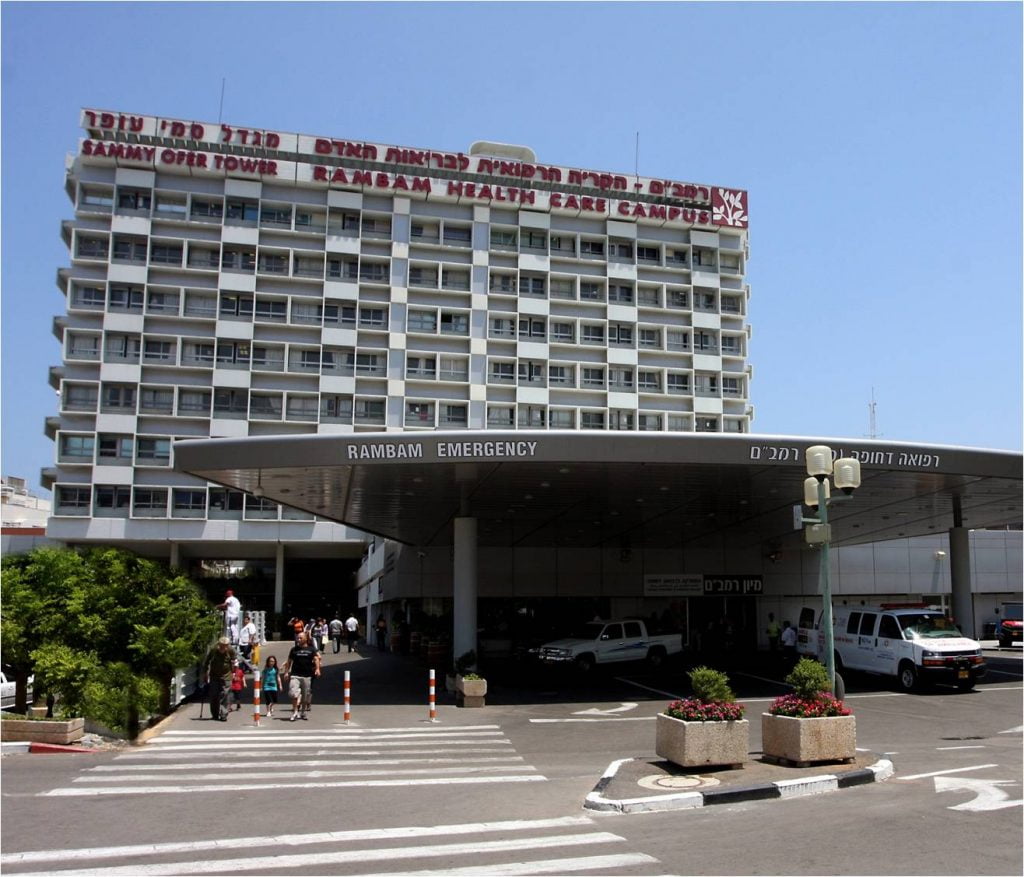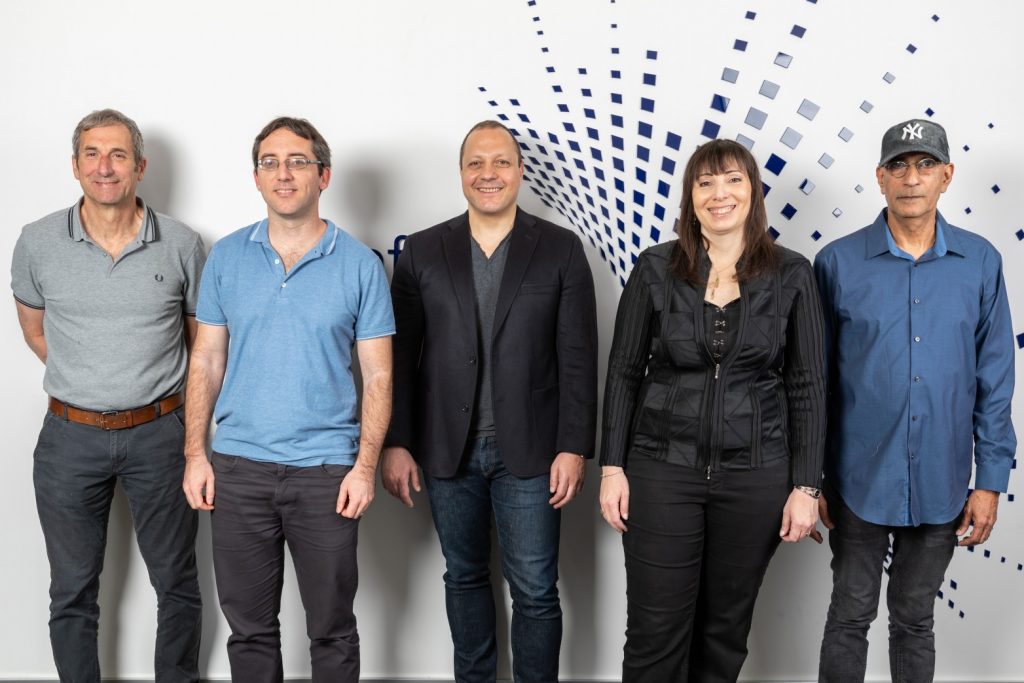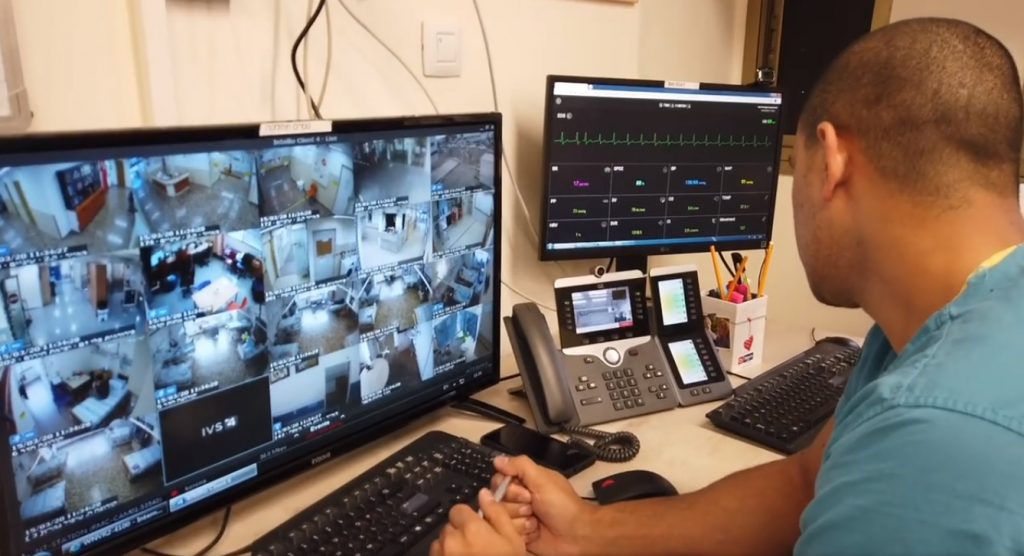Haifa’s Rambam Hospital is set to trial speech-based analysis technology by Israeli company Cordio Medical to remotely monitor and diagnose the status of COVID-19 patients based on samples obtained via a smartphone app.
The Or Yehuda-based Cordio Medical developed the HearO technology to monitor patients suffering from heart failure and the platform could prove useful for the sophisticated management of COVID-19 patients who have received a diagnosis and are in isolation but have yet to be hospitalized, the hospital said.
SEE ALSO: Israeli Voice Tech Startup Vocalis Launches Coronavirus Test Study
HearO analyzes recordings of a patient’s speech and can sense fluid accumulation and forewarn of an anticipated deterioration, the company says, adding that the tech has already been proven in clinical trials at 10 medical institutions in Israel including Rambam, the Beilinson-Rabin Medical Center, and Barzilai Hospital. The system provided a pre-deterioration notice on an average of ten days prior to an acute heart failure hospitalization with an accuracy rate of over 80 percent, Cordio says. The HearO system is in the process of seeking FDA approval as a means to monitor heart-failure patients.
Cordio’s solution for COVID-19 patients is based on adapting HearO to the deterioration process associated with the disease characterized by bilateral pneumonia with edema in the lungs. The system would pick up on a deterioration based on slight changes in lung fluids and the onset of inflammation before the patient can feel it, Cordio explained.
The system will also be used for remotely monitoring patients who have recovered and are at home.
The trial will monitor “5,000 patients ongoing in all stages: isolated (no symptoms), mild, moderate and severe conditions,” for 18 months, Cordio Medical CEO Tamir Tal tells NoCamels via email.

A production version of the system will be available six weeks into the trial, he adds.
Cordio is concentrating on the lung disease-related symptoms that are not easily trackable. Currently, all other symptoms are easily discovered — for example cough and fever, Tal tells NoCamels
The system works by establishing a baseline for each patient after which they will record their voices daily “and we analyze it in our cloud-based system. Each day the system is not alerting, the baseline is adapting and adjusting utilizing the new info,” he says.
Tal explains that if successful, the HearO system will be able to alert the medical team about the start of a lung condition 10-48 hours before the patient’s condition becomes moderate or severe due to the infection.
As of April 1, Israel has over 6,000 confirmed cases of COVID-19, including over 200 recoveries and 25 deaths. Most of those diagnosed with the disease are in isolation at home or in hotels with a minority in hospital.
“Cordio’s novel solution is designed to make remote monitoring of COVID-19 patients more efficient, to identify with the use of a user-friendly mobile app those whose condition is deteriorating and need to be hospitalized and to reduce the pressure on hospitals,” the company said.
The clinical trial will be led by Dr. Gidon Berger and Professor Zaher Azzam from Rambam Hospital and overseen by Professor Ilan Shallom, CTO at Cordio.
“The solution for remotely diagnosing the condition of COVID-19 patients is based on a proven technology that can be quickly adapted for the new pandemic,” said Professor Chaim Lotan, medical director at Cordio, and the former director of the Heart Institute at Hadassah Hospital.
Sign up for our free weekly newsletter
SubscribeProfessor Lotan said that within a few weeks, expected statistical projections will see Israel with tens of thousands of coronavirus patients. “If we succeed through the assistance of Rambam Hospital in proving the efficiency of the system, we will be able to establish a fully operational network within about two months,” he said.

Tal said in a hospital statement that the “pandemic requires the efficient managing of the resources of the health system in order for it to handle the thousands of patients whose number is only increasing and to hospitalize only those with the highest risk.”
“The trial will lead to a turning point in the ability of the health system to efficiently manage the struggle against the pandemic,” he added.
Dr. Michael Halbertal, the director-general of Rambam Hospital said that the previous successful trial conducted with Cordio “gives us hope that we will be able to successfully adapt a similar system for identifying the deterioration in COVID-19 patients who have not yet been hospitalized or who have been discharged to their homes suffering with only a minor case or after complete recovery. Rambam, like other health institutions, is quickly adapting telemedicine and digital health technologies capable of diagnosing diseases, conserving resources, and reducing risk and the pressure on medical teams.”
“Solutions like those of Cordio are especially critical for dealing with the coronavirus which confronts health institutions with complex and large-scale challenges that have not been witnessed before,” indicated Dr. Halbertal.
Voice-based analysis for coronavirus
Separately, Israeli startup Vocalis Health announced last week that it was launching a voice-based test study to triage, screen and monitor for COVID-19 symptoms.
Vocalis developed an AI-based platform that uses voice recordings to detect and monitor health and will now use all its resources “to try to find a unique vocal ‘fingerprint’ that will be able to detect a deterioration in the health of coronavirus patients as well as flag potential symptoms,” the company said.
COVID-19 symptoms include fever, a cough, and shortness of breath and Vocalis believes these symptoms “can be logged through voice tasks like phonation (‘ahhh’) and free speech (e.g. ‘describe your day from start to finish’) – and could potentially be used to screen for COVID-19 symptoms early. ”
Vocalis says that “by analyzing the voice beyond what the human ear can hear, we can unveil dedicated vocal biomarkers that will enable the healthcare community to get insights on the symptoms and hopefully the onset of the COVID-19 virus.”
One part of the study will be led by the Israeli Defense Ministry where Vocalis will work with hospitals and academic institutions to sample the voices of confirmed coronavirus patients through a mobile app.
Another part of the study will collect voice samples from the general population at home and the company asks that people donate their voice. Vocalis hopes to enroll at least 100,000 patients to collect as much data as possible. Participants will be tracked weekly for a month.
Both parts of the study began last week and will end in December.
Vocalis researchers hope to rapidly build a point-of-care diagnostic to save lives and prioritize testing and hospitalized treatment.
Related posts

Israeli Medical Technologies That Could Change The World

Harnessing Our Own Bodies For Side Effect-Free Weight Loss

Missing Protein Could Unlock Treatment For Aggressive Lung Cancer




Facebook comments